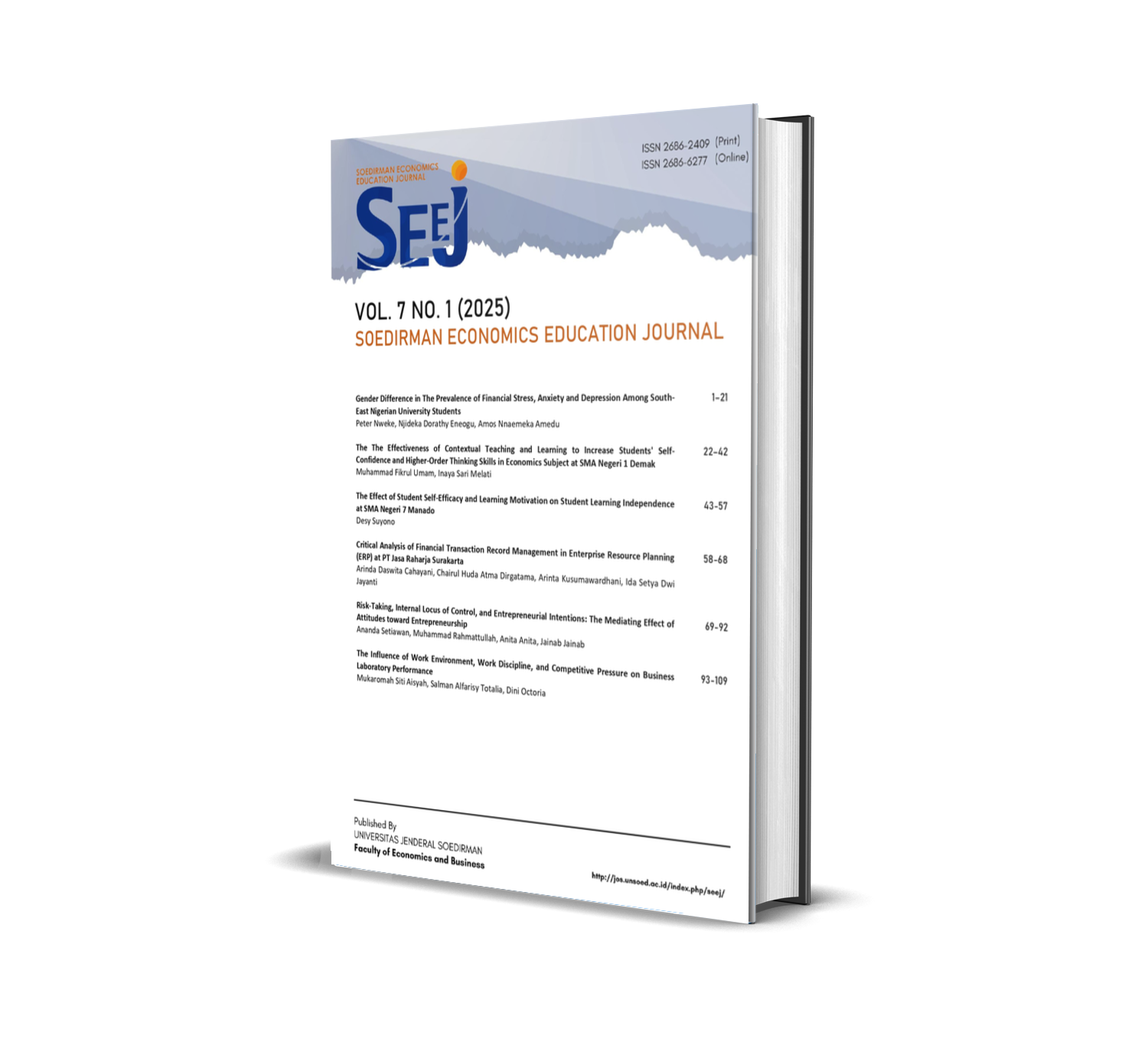The Effectiveness of Contextual Teaching and Learning to Increase Students' Self-Confidence and Higher-Order Thinking Skills in Economics Subject at SMA Negeri 1 Demak
Abstract
This study examines the impact of the contextual teaching and learning (CTL) model in increasing students' self-confidence and higher-order thinking skills (HOTS) in Economics at SMA Negeri 1 Demak. Addressing challenges such as low self-confidence and limited critical thinking often associated with traditional teacher-centered methods, the research compares the CTL approach with Problem-Based Learning (PBL). Using a quasi-experimental design with a nonequivalent control group, the study involved 72 eleventh-grade students who were equally divided into an experimental group (employing CTL) and a control group (using PBL). Data was collected through direct observation of self-confidence indicators as well as pretest-posttest tests to measure HOTS based on aspects of analysis, evaluation, and creation. Statistical analysis, including observation sheet results, N-Gain score calculations, and Independent Sample t-Test, revealed significant improvements in both self-confidence and higher-order thinking skills among students in the CTL group compared to those in the control group. The findings indicate that the CTL model not only increases cognitive engagement but also fosters a more interactive and supportive classroom environment, ultimately enhancing academic performance in Economics. These findings support the adoption of the CTL model as an effective learning strategy in improving Economics subject outcomes at the high school level.

This work is licensed under a Creative Commons Attribution 4.0 International License.
Authors who publish with this journal agree to the following terms:
- Authors retain copyright and grant the journal right of first publication with the work simultaneously licensed under a Creative Commons Attribution License that allows others to share the work with an acknowledgement of the work's authorship and initial publication in this journal.
- Authors are able to enter into separate, additional contractual arrangements for the non-exclusive distribution of the journal's published version of the work (e.g., post it to an institutional repository or publish it in a book), with an acknowledgement of its initial publication in this journal.
- Authors are permitted and encouraged to post their work online (e.g., in institutional repositories or on their website) prior to and during the submission process, as it can lead to productive exchanges, as well as earlier and greater citation of published work (See The Effect of Open Access).

This work is licensed under a Creative Commons Attribution 4.0 International License.




















